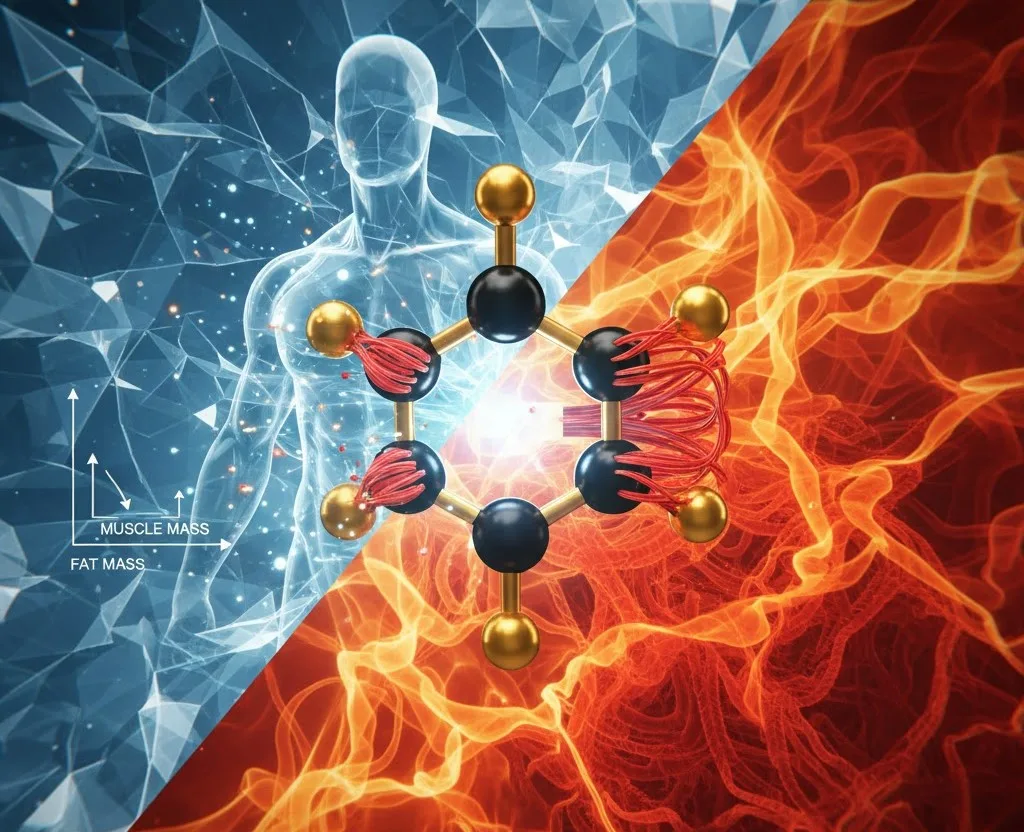For athletes and fitness enthusiasts, the "cutting phase" – a period of caloric restriction aimed at reducing body fat while preserving muscle mass – is a common yet challenging endeavor. The delicate balance between shedding fat and maintaining hard-earned muscle can often feel like walking a tightrope. Traditional wisdom dictates that a significant calorie deficit, while effective for fat loss, inevitably leads to some degree of muscle catabolism, exacerbated by the natural decline in endogenous testosterone levels. However, recent research sheds light on a powerful intervention that could fundamentally alter this paradigm: exogenous testosterone administration.
A notable study explored the impact of testosterone injections on body composition during a severe caloric deficit. Participants were subjected to an intense 55% calorie deficit over 28 days, a condition designed to push the body into a significant state of energy depletion. This extreme deficit served as the backdrop for two distinct groups: one receiving testosterone enanthate injections (200 mg per week), and another receiving a placebo. The results were nothing short of remarkable.
The placebo group, despite their diligent adherence to the caloric restriction, experienced a predictable outcome: a loss of 1 kilogram of muscle alongside 4 kilograms of fat. This illustrates the inherent difficulty for athletes in maintaining muscle integrity under severe energy constraints, a common frustration for many undergoing intense pre-competition cuts or weight-class adjustments.
In stark contrast, the group receiving testosterone injections not only preserved muscle but significantly gained it. These individuals gained an impressive 4 kilograms of lean muscle mass while simultaneously losing 5 kilograms of body fat. This finding is a game-changer, demonstrating that exogenous testosterone can not only prevent the catabolic effects typically associated with extreme dieting but can also promote a robust anabolic state, leading to muscle accrual even in a severely hypocaloric environment.
The implications for athletes are profound. During periods of intense training and aggressive dieting, such as pre-competition preparation or rapid weight loss for specific sports categories, maintaining muscle strength and power is paramount. The natural drop in testosterone levels under these conditions can compromise performance and recovery, increasing the risk of injury and hindering peak athletic output. The study highlights that even a relatively modest dose of testosterone can counteract these detrimental effects, potentially offering a strategic advantage.
Furthermore, the research points to an increase in androgen receptor expression within the testosterone group, suggesting a heightened sensitivity to androgens that could contribute to the enhanced anabolic response. While the study utilized a dose of 200 mg per week, it also acknowledged that even physiological doses (around 100 mg per week) could be effective in preventing the muscle loss typically seen in caloric deficits.
It is crucial to understand that while these findings are compelling, the use of exogenous hormones in sports is governed by strict anti-doping regulations and ethical considerations. The purpose of discussing such research is to understand the physiological mechanisms at play and the potential pharmacological interventions that exist, rather than to endorse their use without proper medical supervision and adherence to sports governing body rules.
In conclusion, this research provides a powerful illustration of testosterone's profound impact on body composition, particularly in the challenging context of a severe caloric deficit. For athletes, understanding these mechanisms can inform future nutritional and training strategies, and further research into safe and ethical methods of optimizing hormonal balance during intense training phases will undoubtedly continue to evolve.

